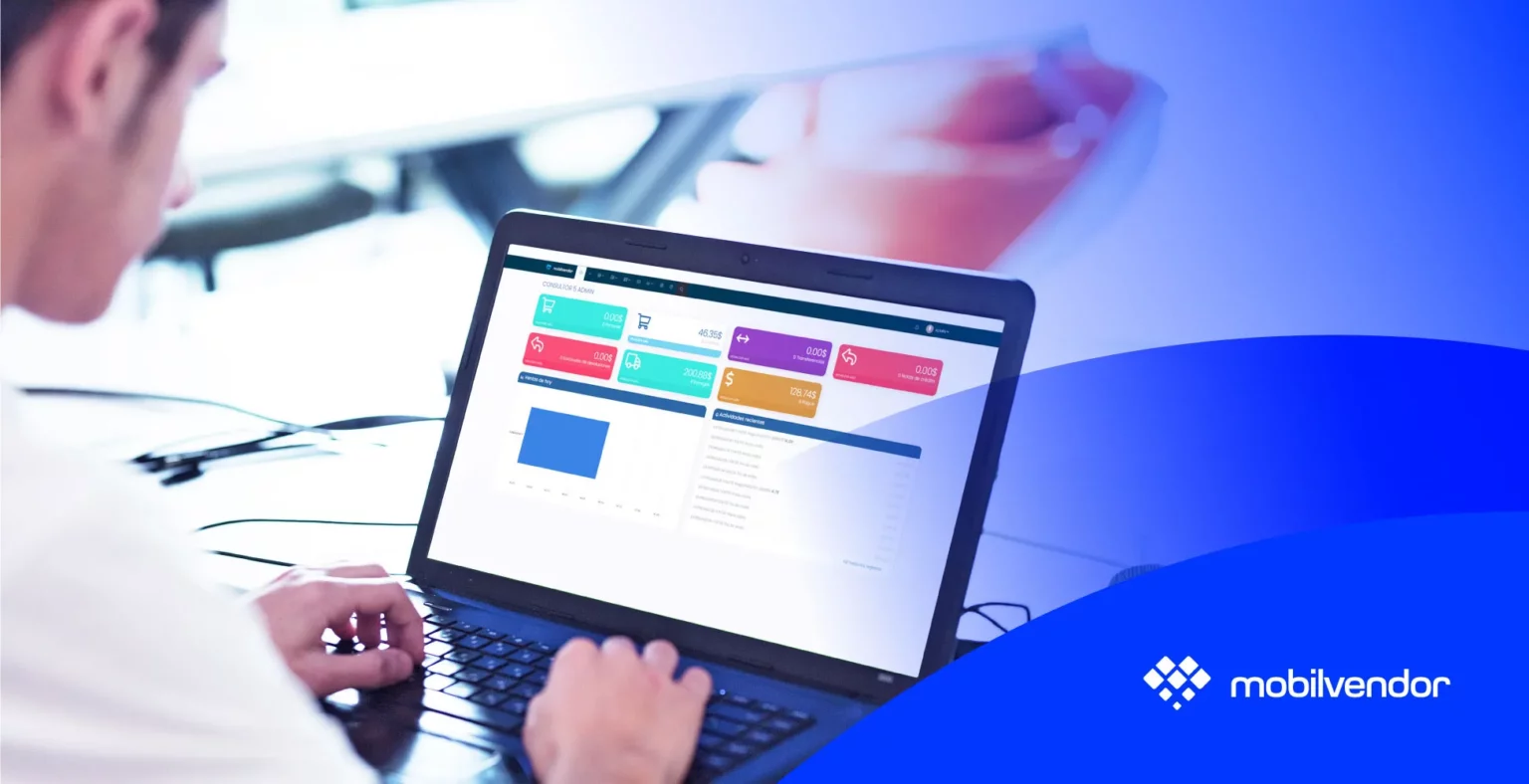
Companies use data management as a strategy to decide how they use, work, purify and exploit their data, both at the company and organization levels. In short, data management is that data management strategy (DMS) that integrates the process of developing plans to manage the creation, storage, processing and elimination of data processed by an organization. In this article, we are going to review the main aspects of data management as a strategy associated with the digital transformation of a company. We are going to tell you about the importance, examples and data management software that you can use in your company to have a new vision of effective data management. Hire Mobilvendor Back Office, enjoy dashboards and data boards in Power BI in an easy way. Buy hereBusiness Data Analysis SoftwareBack Office MobilVendor ModuleContents hide 1 What is data management? 2 Importance of data management3 Data management software: Mobilvendor Back Office4 Types of data management5 Benefits of data management What is data management? Data management is the process of creating strategy/plans to manage data created, stored, managed and processed by an organization. Data management strategy is closely linked to the IT governance and project management process that aims to create and implement a well-planned approach to managing the data assets of a company, business, project, etc. Organizations make decisions about how they use, operate and leverage their data, at the company or project level. Organizations that adopt a DMS point of view when adopting an enterprise-level data strategy are well positioned to optimize their investments in technology and reduce their costs. These types of strategies can be used to obtain a competitive advantage by integrating them into business operations in the logistics, financial and commercial areas. Importance of data managementData management is an important tool when it comes to correctly managing all the information that your business collects. With DM, you can gain a competitive advantage over your competition when it comes to analyzing data and having processes that allow you to obtain information accurately and in the shortest possible time. In a planning team that manages a company's supply chain, having dashboards with information that has been refined allows you to know the best way to supply branches, place orders on time and know the average turnover of SKU's in a warehouse. Like this previous example, there are thousands of possibilities and data that you can visualize if you use data management in your business. For this, you can rely on tools such as Mobilvendor with its logistics, commercial, back office and analytics.data management modules in businessData Management: Data Governance Strategy. Source: HereData Management Software: Mobilvendor Back Office Although there are several solutions on the market for data management, currently one of the integrations that work best is the one that Mobilvendor provides us. When it comes to data management, Mobilvendor's Back Office module allows us to obtain unique, real-time information. Here are some of the functions of the Back Office that will help you with your DMS: Integration with business intelligence tools for advanced KPI analysis. Our team generates the necessary dashboards for your team through our Mobilvendor — Power BI integration.Real-time visualization of transactional data and business operations.Standardization and product management for effective regional promotions. Detailed customer and sales information for personalized market strategies. Mobilvendor's software helps with data management because it provides you with a platform in which, with the help of data governance, you can integrate a decision-making strategy based on data that your business generates every day. Types of data managementAs we know, data management is all that structure and strategy that allows a perfect organization of data. To achieve this, you must take into account the different types of data management that you can work with with expectations of creating a complete data management strategy. Here are some types: Data lifecycle management (DLM): Identify the different stages through which information passes and creates policies to manage each of them. Its goal is to maximize the lifespan of data. The stages include collection, access, use, storage, transfer, and disposal. Data pipelines: This is the path that a group of data follows from one system to another. Sometimes, data is transformed in the process. An example is the transfer of paid advertising data from Google Ads to a Power BI Dashboard, allowing analysis on a single platform.ETL (Extract, Transform, Load): A popular type of data pipeline that facilitates the extraction of data from multiple sources, its transformation for analysis and its loading into a new system. This can be achieved with Mobilvendor and its ease of integrating with other ERP systems in your company. Data processing: It involves the collection and translation of data into useful information. There are electronic, mechanical and manual methods, with automated processing being the most common. At Mobilvendor, our data analysis team does all the work for you.Data architecture: Structure that supports a company's data strategy, showing how data is obtained and used, as well as its storage and security.Data modeling: Simple diagrams that show how data flows through business systems and processes, making it easier to understand the movement of data.Data catalogs: Inventories of data resources within a company, organized using metadata to facilitate searching and access.Data integration: Combines data from different systems to create a set, improving data quality by allowing comparisons between them.Data migration: Comprises the process of moving data from one database to another, generally performed by changing business management systems or data formats.Data governance: A set of rules and procedures that define how data is managed in a company, ensuring its consistency, security, and accessibility. Data security: Protecting data against theft, corruption, and other risks during its lifecycle, including the use of hardware, software, and access controls. At Mobilvendor, we work with Amazon AWS, ensuring the complete protection of your data in the cloud. Data storage: Practice of recording and preserving data for the future, using electronic methods such as cloud repositories or physical copies of data. Data management benefits Data management allows for more rigorous control of information, creating opportunities and reducing the risks of data breaches, privacy violations and distribution of incorrect data. Here are some benefits of implementing data management:Information quality: Establishing data standards and definitions at the business level, together with a coordinated effort, improves data quality.Integration capacity: Well-defined data management processes allow an organization to be proactive and integrate with organizational changes or developments at a lower cost and with a limited load. Performance management and business intelligence: Clearly define ownership of data, control its quality and implement the data management reduces costs and complexity in managing performance and business intelligence. Establishing new rules and processes: Creating and implementing standardized and formalized rules and processes is key to ensuring that data is reliable, secure and suitable for business use.Aligning or modifying existing rules and processes: Evaluate current rules and processes to ensure that they meet their purpose and modify them if necessary. With all of the above reviewed, we conclude that Data Management is the ideal solution to help a company improve data management. If you are about to implement a Data Management strategy in your business, do not hesitate to contact us as Mobilvendor Back Office can help make your strategy effective. Contact us here.


The business management platform that grows with you. For entrepreneurs, small businesses and regional corporations. Mobilvendor combines automation, artificial intelligence and expertise to give you what every business needs: real and sustained control.


